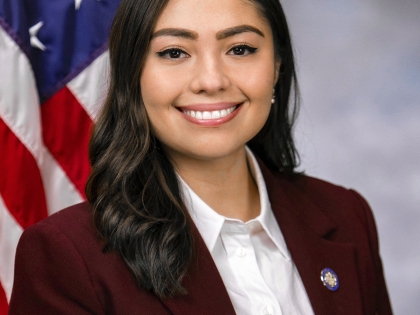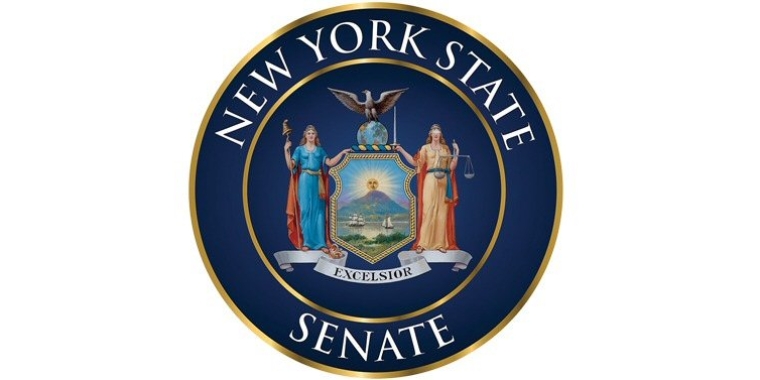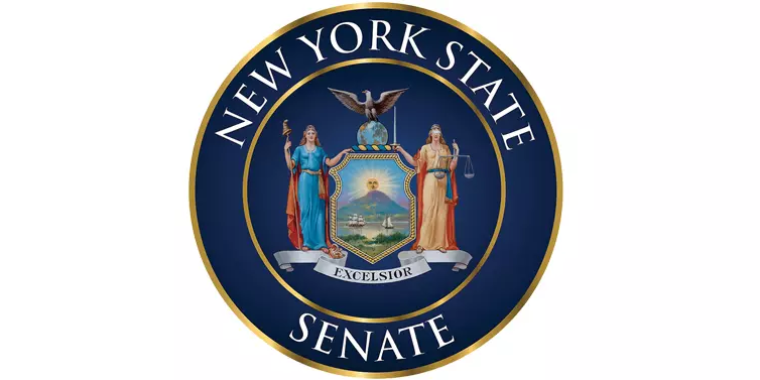
NYS Senate Passes Senator Gonzalez’s Bill To Support Survivors Of Economic Abuse
May 18, 2023

NEW YORK - Today, the New York State Senate passed S5915, sponsored by Senator Kristen Gonzalez (SD-59) and Assemblymember Linda Rosenthal (AD-67). This legislation would require the Office for the Prevention of Domestic Violence to distribute materials on economic abuse at temporary shelters, local social service offices, police departments, and childcare facilities. The materials would include information on identifying and preventing economic abuse as well as resources available for those experiencing economic abuse.
"Economic abuse is a form of violence that is present in nearly every case of domestic violence,” said Senator Kristen Gonzalez. “Leaving an abuser when you don’t have access to money is immensely difficult. For those who do leave, that decision often results in not having enough money for essentials like food or housing. In recent years efforts have been made to increase assistance to those experiencing physical violence, yet we must also equip survivors with the resources they need to overcome economic violence. Providing information and resources at temporary shelters, local social service offices, police departments, and childcare facilities will help get this information into the hands of those who need it most.”
"Economic abuse often leaves an invisible mark, however, its impact on survivors cannot be overstated," said Assemblymember Linda B. Rosenthal (D/WF-Manhattan), Chair of the Assembly Committee on Housing. "People living in abusive situations are often bullied by their partner into incurring debt against their will, essentially forcing them to underwrite loans or open multiple lines of credit in their name. Our bill would shine an educational light on this type of abuse and the resources that are available to survivors in these situations. I thank Senator Gonzalez for her efforts in passing this important piece of legislation, and I look forward to ushering this bill over the finish line on behalf of all survivors in the New York State Assembly."
Councilmember Justin Brennan said, “Economic abuse is an insidious form of domestic violence that occurs in most abusive relationships, and is very commonly the driving reason that survivors stay with or return to their abusers. I was deeply proud earlier this year to pass legislation expanding New York City’s definition of domestic violence to include economic abuse. That’s about more than just semantics - it expands eligibility for city-level protections and supportive programs to survivors of economic abuse in addition to other forms of domestic violence. Opening these opportunities to survivors of economic abuse can make an enormous difference in their lives, but only if they are aware they qualify. That’s why I’m thankful to Senator Gonzalez, Assembly Member Rosenthal, and our state-level colleagues for raising this critical issue and passing legislation to widely distribute information and resources related to economic abuse. Knowledge - and the access to support that comes with it - is power, and there’s no better way to strengthen New York than to empower our neighbors in need.”
Economic abuse is a manipulative form of control where victims do not have full access to their own income, spending, or bank accounts. It isn’t limited to financial matters alone and can also include necessities such as food, clothing, transportation, and/or technology. Economic abuse often involves coerced debt, whereby an abuser forces a partner to incur debts against their will.
This type of abuse is used to create economic instability to make one economically dependent on their abuser, ultimately limiting their freedom and independence. According to the National Coalition Against Domestic Violence, economic abuse is a leading reason why victims stay in or return to their abusers. Between 94-99% of DV survivors have experienced this form of abuse.
This spring, NYC passed Intro 148A to expand the definition of Domestic Violence to include economic abuse. S5915 builds upon that legislation by ensuring that those who suffer from this form of abuse will have access to the information and resources they need.
###
Share this Article or Press Release
Newsroom
Go to Newsroom

